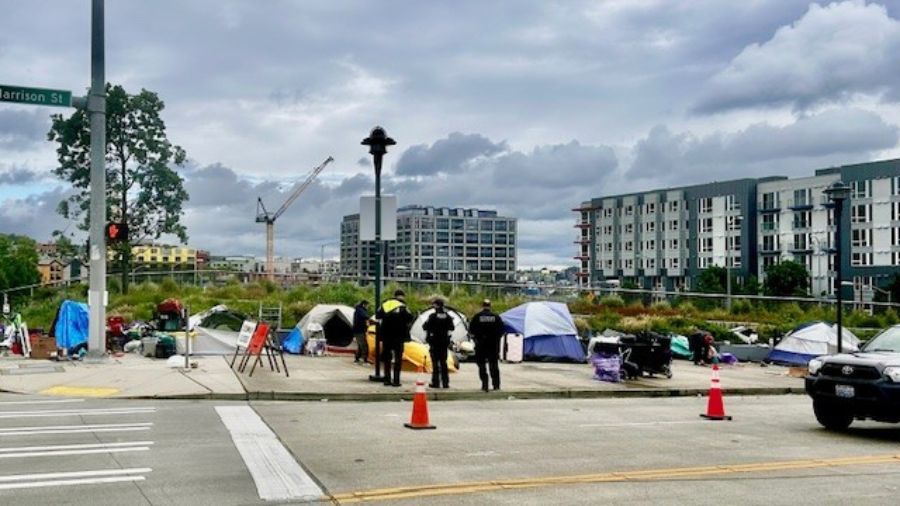Doctor outlines danger for your eyes as solar eclipse approaches
Apr 2, 2024, 5:23 PM

A crowd gathers in front of the Hollywood sign at the Griffith Observatory to watch the solar eclipse in Los Angeles on Monday, Aug. 21, 2017. (Photo: Richard Vogel, AP)
(Photo: Richard Vogel, AP)
There is always excitement when a solar eclipse draws near. However, doctors wish there was more understanding of the danger it can cause your eyes.
“Shorter durations can be reversible. Longer durations can be permanent, and you can end up with a blind spot in the middle of your vision,” University of Washington Ophthalmologist Dr. Russ Van Gelder said.
Doctor treats 6 patients after solar eclipse
After the 2017 solar eclipse, Doctor Van Gelder treated six patients for varying degrees of retinal damage, caused by viewing the eclipse without protective glasses. Many more reported eye damage all around the country.
Dr. Van Gelder said it takes light particles, called photons, eight minutes to travel 93 million miles from the surface of the sun to the surface of our retinas. And those retinas are still packed with energy.
Last year: Watch: The solar eclipse
“When we were all kids, some of us would occasionally burn things on the ground with a magnifying glass. Those magnifying glasses only had powers of maybe 10 or 20 diopters. Your eye has 60 diopters of focusing power. And so, if you look straight at the sun, you’re essentially doing the same thing as burning leaves on the ground with a lens, but it’s your retina that’s burning. So, it’s really, really important in an eclipse not to look directly at the sun. You can do irreversible permanent damage to your retina,” Dr. Van Gelder said.
Fortunately, there is an easy solution that allows you to enjoy the eclipse and protect your eyes — buy proper eye protection before viewing the eclipse.
“The real eclipse glasses should look just about black when you put them on if you’re not looking at the sun. So, you really want to see that there’s the ISO standard that’s been applied. I think they say ISO 12312-2015. So, you really want to look for that,” Dr Van Gelder said.
Our region will only see a partial eclipse next Monday, starting around 10:40 a.m.
You can read more of James Lynch’s stories here. Follow James on X, formerly known as Twitter, or email him here.













